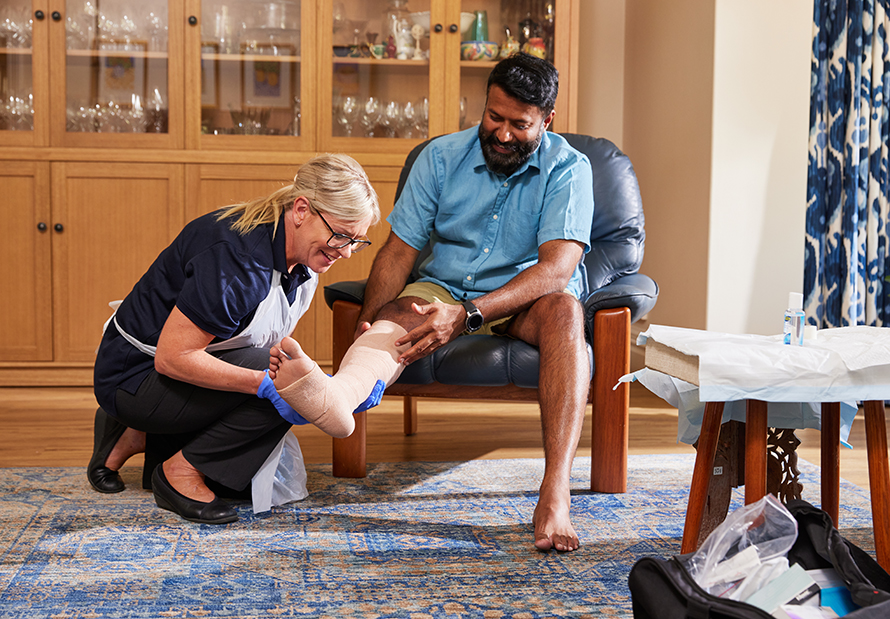- Home
- Latest news from Silverchain
- Study on skin tear assessment tool wins award
Study on skin tear assessment tool wins award
A study by Silverchain on the effectiveness of using a skin tear assessment tool has won the original research article award as part of the prestigious Coloplast Biatain Literary Awards.
The study, published in the Journal of Wound Practice and Research, was titled The STAR classification: utility for determining healing times and dressing costs associated with skin tear management. The study and the resulting research paper were undertaken by Silverchain’s Dr Robyn Rayner, Professor Keryln Carville, Joanna Smith and Cate Maguire.
The study examined healing times and dressing costs for older adults with skin tears using the Skin Tear Audit Research (STAR) Classification that was developed by Silverchain and Curtin University in 2007.
It is the first study of its kind to look at the implications of using a skin tear classification tool for determining healing times and dressing costs for treatment.
Skin tears are superficial or full thickness trauma-induced injuries that primarily occur on the arms and legs of older persons and are associated with age-related skin changes. Skin tears are the most common wounds found amongst older people and they are often associated with knocks or falls.
Silverchain’s Professor of Primary Health Care and Community Keryln Carville, a co-author of the paper, said the study would assist in making wound care more effective as well as provide greater transparency of healing times and costs to treat.
“The STAR classification has demonstrated to be an effective tool for assessing skin tears and for providing a basis for risk stratification that determines which skin tears are likely to be more costly in terms of healing times and treatments,” Professor Carville said.

The study reviewed over 2100 skin tears sustained by 1300 Silverchain clients aged 65 years and older, between June 2016 and December 2018.
The most significant finding of the study was that the presence of a haematoma under a skin tear flap significantly increased healing times and wound dressing costs compared to other skin tears within the STAR classification.
The median healing time for skin tears with a haematoma under a flap was 22 days, compared to a 16-day healing time for a skin tear without a haematoma. The median dressing costs to a heal a skin tear with a haematoma was $21.19, compared to $13.68 for skin tears without a haematoma under a flap.
The award will be presented at the Wounds Australia Conference on September 16 in Sydney. The Coloplast Biatain Literary Awards are judged by the Editorial Board of Would Practice and Research.
A direct link to the research article is here while a link to the edition of the Journal of Wound Practice and Research is here.
